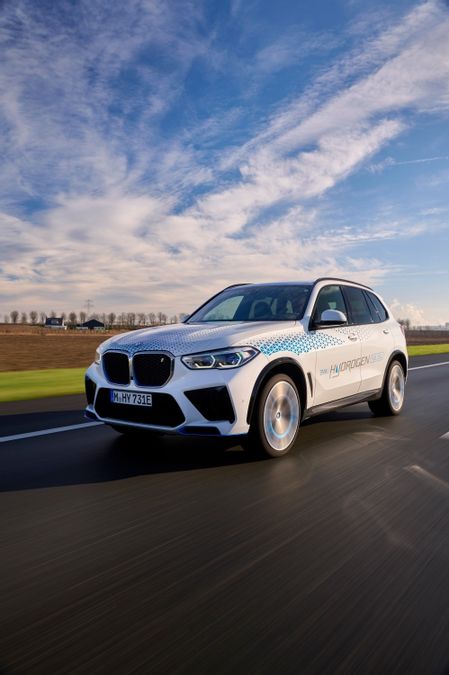JAKARTA - Hydrogen electric cars (FCEV) are a type of environmentally friendly vehicle that has also been popular in recent years. Unlike electric cars, the type is not yet too common on the highway.
Then, how popular are hydrogen electric cars in today's market? According to a report by the market research institute Information Trends released in February 2023, sales of hydrogen electric vehicles have increased significantly in several countries. The total number of hydrogen-powered passenger vehicles in the world today stands at around 56,000 units.
Of this number, the high demand rate was recorded in 2021 and 2022 with sales reaching 30,000 units.
Japan is at the forefront of adopting hydrogen electric cars, with more than 3,000 units sold in 2020. South Korea also experienced a significant increase in sales of hydrogen electric vehicles, with more than 1,700 units sold in the same year.
In the United States, California is the leading state in adopting hydrogen electric cars, with about 8.000 units sold since 2015. In Europe, Germany is leading in terms of sales of hydrogen electric cars, with more than 1.200 units sold in 2020.
The FCEV study of Information Trends also underscores Asian and European countries that have invested heavily in hydrogen fuel cell technology and infrastructure. Meanwhile, adoption is very slow in the US, except in California.
Far back, the slow pace of the US in the development of this hydrogen car is clearly contrary to President George W. Bush's annual state speech delivered at the United States Congress, January 28, 2003.
At the time, Bush was very optimistic about hydrogen cars and announced research investments worth 1.2 billion US dollars to help the US become a world leader in developing hydrogen-powered cars.
"With the new national commitment, US scientists and engineers will address all obstacles to bringing hydrogen cars from the laboratory to the exhibition room so that the first car driven by a child born today can be powered by hydrogen, and pollution-free," Bush said in a speech in 2003..
Then what are the inhibiting factors? Reportedly, at that time the US government did not appear interested in funding the technology. Costs are one factor that hinders the widespread adoption of hydrogen fuels.
One kilogram of hydrogen costs between $10-17 at California's hydrogen charging station, which is equivalent to $5-9 per gallon of gasoline. On the other hand, the cost of charging electric vehicles at home is only $1-2 per gallon of gasoline, "said California's Hydrogen Business Council, as quoted from the caranddriver, September 27, 2022.
Another inhibiting factor, the price of the car itself is because the production of hydrogen cars is still limited. As a result, hydrogen cars have a higher price than electric cars.
Then, hydrogen filling infrastructure is also still lacking compared to electricity charging infrastructure.
Other additional factors arise concerns about safety. Hydrogen is a highly flammable substance and is difficult to control in the event of a leak or fire.
However, hydrogen cars have great potential to be a better alternative in line with technological developments and infrastructure improvements.
The English, Chinese, Japanese, Arabic, and French versions are automatically generated by the AI. So there may still be inaccuracies in translating, please always see Indonesian as our main language. (system supported by DigitalSiber.id)











